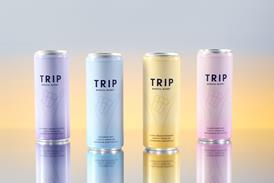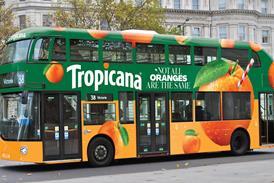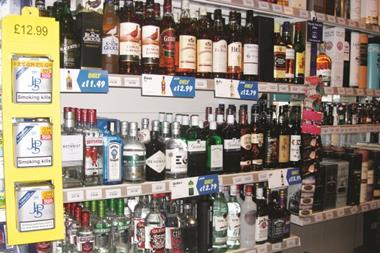A new independent report recommending a 50p minimum price per unit of alcohol has divided the retail community.
Backed by more than 70 health organisations, the University of Sterling report urges the UK government to follow Scotland’s lead in adopting the 50p measure to tackle alcohol abuse.
The UK government had proposed a 45p per minimum pricing unit as part of its alcohol strategy, however, according to reports in the Telegraph today, the Coalition may be about to withdraw the plans because of differences between ministers.
The minimum price was also opposed by the Treasury, where officials argued that it would reduce tax revenues at a time when the public finances remain strained.
The National Federation of Retail Newsagents (NFRN) had welcomed the proposals, arguing that minimum pricing would reduce crime and level the playing field with the multiples.
“Not only do we believe that minimum pricing will help tackle crime, it will have a beneficial effect on the hard-pressed independent retailer sector, levelling the playing field with the large multiple chains that have irresponsibly used loss leaders and multiple purchase offers on alcohol products to gain market share at the expense of smaller local shops,” said NFRN national president Alan Smith.
Also backing the proposal, Syed Husain, operations manager of London’s Sunstar Group, said the government had a responsibility to control supermarket alcohol prices and target strong lagers and ciders.
“Supermarket prices are too low. How come they can sell for less than we buy in the cash and carry? And strong lagers and ciders cause lots of problems and violence, in my experience most of the people buying them are drunks,” he said.
Syed said crime had disappeared in his stores since they stopped selling strong lagers and ciders. “Windows used to get smashed in frequently in some inner London stores, which would cost about £300 to replace. That would take a lot of cases to recoup,” he added.
But Budgens Hassocks retailer David Knight said minimum pricing wouldn’t deal with the issue. “It would penalise the masses for the weaknesses of the few – and I don’t think it would level the playing field,” he said.
Association of Convenience Stores (ACS) chief executive James Lowman added: “We don’t believe minimum pricing it the most effective way of targeting problem drinkers.”
The report’s other proposals include restricting the sale of alcohol in shops to specific times of the day, and a prohibition of all alcohol advertising.
See the report here.
















3 Readers' comments